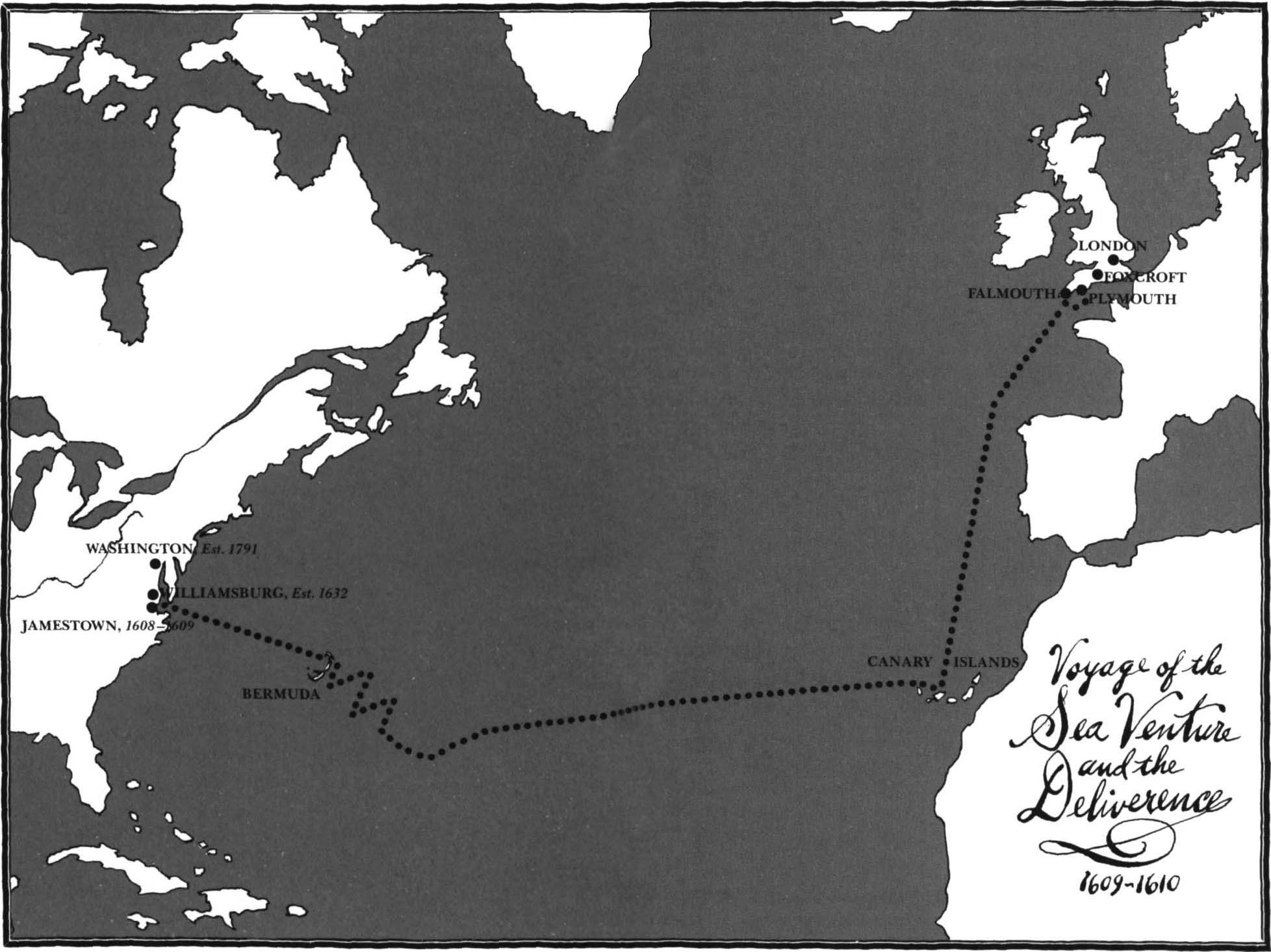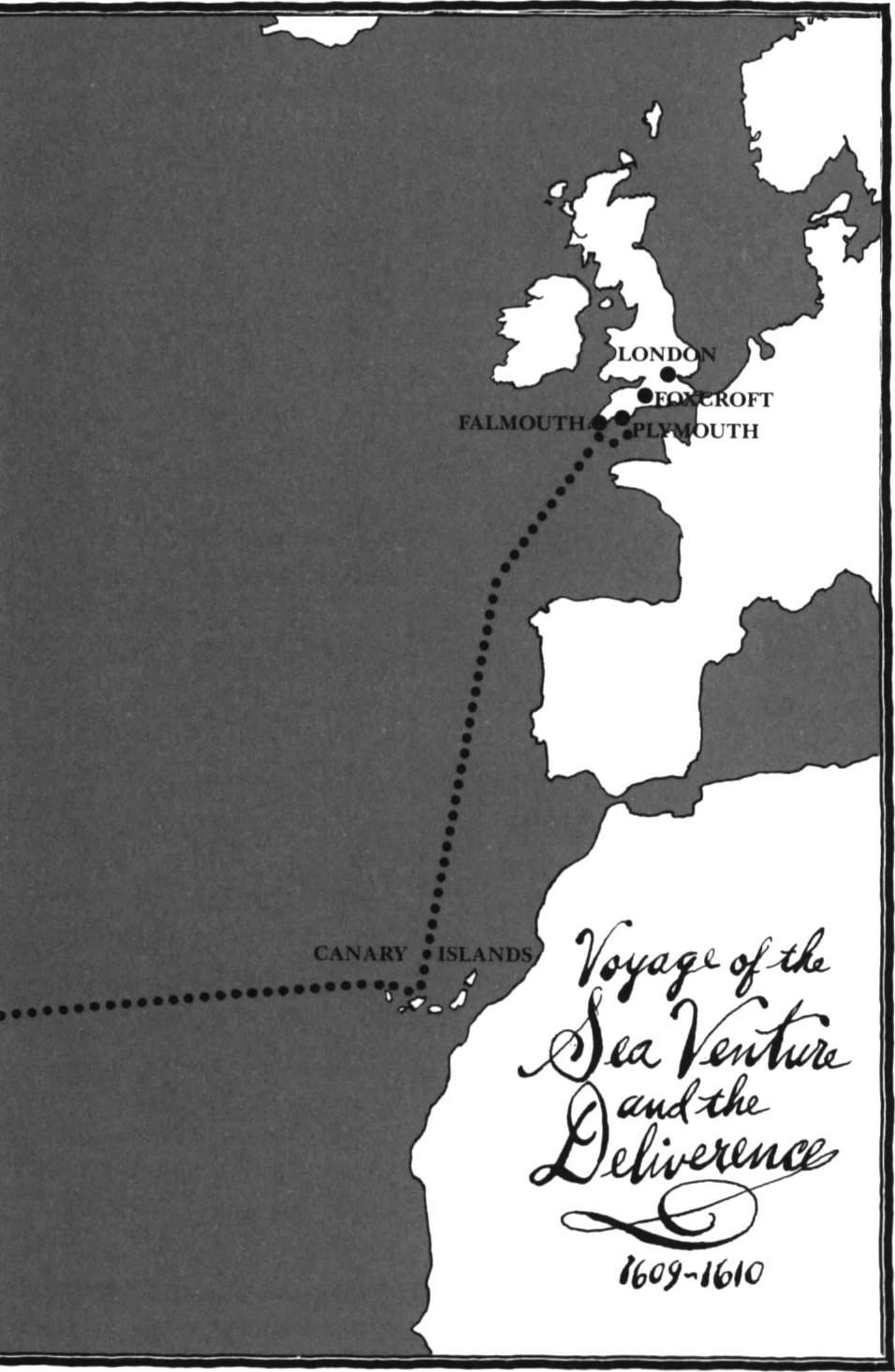Serpent Never Sleeps
Read Serpent Never Sleeps Online
Authors: Scott O'Dell

A Novel of Jamestown and Pocahontas
Scott O'Dell
Illustrations by Ted Lewin
Houghton Mifflin Company
Boston 1987
Library of Congress Cataloging-in-Publication Data
O'Dell, Scott.
The serpent never sleeps.
Summary: In the early seventeenth century,
Serena Lynn, determined to be with the man she has
loved since childhood, travels to the New World and
comes to know the hardships of colonial life and the
extraordinary Princess Pocahontas.
1. Jamestown (Va)âHistoryâJuvenile fiction.
2.Pocahontas, d. 1617âJuvenile fiction.
[1. Jamestown (Va.)âHistoryâFiction. 2 Pocahontas,
d. 1617âFiction. 3. VirginiaâHistoryâColonial
period, ca. 1600-1775âFiction] I. Lewin, Ted, ill.
II. Title.
PZ7.0237Se 1987 [Fic] 87-3026
ISBN 0-395-44242-7
Copyright © 1987 by Scott O'Dell
All rights reserved. No part of this work may be
reproduced or transmitted in any form or by any means,
electronic or mechanical, including photocopying and
recording, or by any information storage or retrieval
system, except as may be expressly permitted by the 1976
Copyright Act or in writing from the publisher. Requests
for permission should be addressed in writing to Houghton
Mifflin Company, 2 Park Street, Boston, Massachusetts 02108.
Printed in the United States of America
A 10 9 8 7 6 5 4 3 2 1
to Bob and Tennie Bee




Foxcroft, England
Foxcroft lies among green meadows where sheep graze and wooded hills abound with deer. The River Dane flows lazily around the castle, holding it in a fond embrace. Walls of rosy stone spring blithely toward the heavens. Flags fly and golden weather vanes turn round and round.
It seems a peaceful place, where one happy day foretells another. And so it was until a stormy dawn when my brother and I were fishing on the River Dane. Not fishing, really, but poaching on the part of the river that belonged to the earl of Covington.
I didn't like to fish and I had never poached for fish. Poachingâcatching fish in waters that belong to someone elseâis a serious crime. You can have an ear lopped off, or even your head.
My brother, Edmund, was the keeper of Foxcroft's fine horses, thirty-three of them, which was a very responsible position. But he loved danger and he loved to fish. Poaching was a nice mixture of both. Besides, Lord Covington's two miles of the River
Dane boasted the deepest pools and the best currents for leagues around.
The night before I went to the river with him, Edmund came up from the stable just as I was going to bed. He stopped me on the stairs that led to the tower where I slept and did my work.
"I need your help," he said.
"With what?"
"With fishing. They're getting suspicious at Covington. I almost got caught last week. I had to throw my fish in the river and run for it."
"What can I do?"
"Tomorrow morning I fish Covington's. You're needed to keep lookout."
I began to tremble. "What happens if we get caught?"
"If you keep your eyes open, we won't."
"But if we are, what happens? You go to the jail, then I lose my good place at Foxcroft. And who knows what the earl of Covington will do? He could call out the bailiff and cart me off to jail."
"Nothing like that. He's not a vengeful man."
"Most surely he'd tell the countess."
Edmund untied his red neckerchief and gave me a contemptuous look. "One thing about you, Serena, I don't understand is why you're such an infernal mouse. You didn't get it from Mam or Dad. They're stout people. Probably from your granddad, the biddable preacher, who raised chickens to eat but
was so chicken-hearted he made someone else kill them."
Edmund tied his neckerchief and stalked down the stairs. When I reached the tower, I watched as he went down the path to the stables. I was angry with him for saying what he hadâfor saying I was an infernal mouse. He had called me that name before. A dozen times before. I was tired of hearing it. I was undressing, but I put on the clothes I had taken off, ran down to the stables, and told him I would go with him in the morning and keep watch.
At dawn I met him on the river. It was a stormy day with black clouds tumbling over hill and meadow. Covington Castle, atop a rocky crag, stood hidden, but the road that led to the river showed clear.
"They're sowing timothy below the castle," my brother said. "It's early yet but they'll soon be coming down. Keep watch and tell me when you first spy a cart."
He cast a hook into a pool of roily water, and I took up a place nearby where I could talk to him and watch the Covington Road at the same time.
He had been fishing for only a moment when his line tightened and ran off the reel.
"I've hooked a monster," he called out. "Two stone it will be, maybe more."
"More, the way it pulls," I called back. "'Tis surely a prize."
The current ran dark after the night of heavy
rain. The line came in slowly. It wrapped itself around a floating tree. Edmund, who was good at fishing, curved a loop, freed the line, and took in what he had lost.
The sun struggled up, casting a murky light. The Covington Road showed clear.
"There's a stump yonder," I said. "Not far in front of you. It's sunk deep and it's mean-looking. Four branches sticking straight up."
"I see it," Edmund said impatiently. "Watch for carts. I'll do the fishing." He went up the river a short ways and guided the line around a stump, took in the slack, and wound in slowly. The line sang, sending off drops of water. For a moment it went slack in a quiet way and floated. We both thought it had come apart.
"Lost it," my brother said.
"Too bad! But we can try again tomorrow," I said to raise his spirits.
"The big ones are old. They're old because they've learned and gotten smart. This one won't strike for a while. Never, most likely."
Suddenly the line tightened and the big wooden reel rumbled. Half the line went out, down the swirling river. The pole bent double. Edmund hung on and a foot at a time got most of the line back. Off it went again in the oily current. Again he got it back.
There were sounds from the west. I told him that
I saw a cart leaving the Covington Gate. "We are within plain sight," I told him.
He got out his knife.
As he did this, a great black cloud hid the sun. It was dark again on the river. Edmund put the knife away. I climbed a small hill nearby where I had a better view of the Covington Road. The cart had disappeared.
When I came back to the river, he was reeling in, guiding the fish through tall weeds close to the shore.
It was then that I heard voices in the woods behind us.
"It's not the Covingtons," Edmund said. "I know their voices well. But best we not chance it."
He took out his knife and cut the line, and the fish swam away. The voices grew louder. A pack of beagles, their tails held high, came charging toward me. I heard branches snap and the sound of hoofs. I saw a band of hunters break through the willows.
Ten of them, strung out one after the other, carrying guns. In front was a tall, pale-faced man in a peaked hat. From the clacker and small horn around his neck I took him to be a flusher.
"A very good morning to you," the flusher said.
At least that is what I thought he said. I am not certain about this, for he spoke with a burr. His words sounded like hard lumps of coal tumbling down a chute. He was an odd-looking man for a deer flusher. Huge around the middle but with long, spindly legs,
he reminded me of the actor I had seen play Shakespeare's Falstaff.
I thanked him for his greeting and wished him well. My brother was walking on, bent dejectedly against the wind.
"Fishing poor?" the flusher asked.
"Beastly," I answered, to put him off.
"It's not the right time of year for salmon, though some run to the east of here."
He went on, naming the streams where fish might be caught, speaking quickly and with a burr. I only half-listened, anxious to be at work.
"You seem but little interested in the fishing sport," the flusher said.
"To me, 'tis not a sport. I'm sorry for the fish. I prefer to let them stay where they be."
"You have tender thoughts," he said. "Too tender for this world. How do you fare in life? How do you possibly manage? What do you do? Raise silkworms in a cloister? Do the munching worms distress you?"
"I work for the countess of Foxcroft," I said, wishing he would ride on and attend to his hunting.
He got down from the horse and came toward me, limping a little. He was not the huge man, the famed Falstaff I had envisioned. It was the ponderous quilting he wore from hip to stomach, a custom among those who lived in fear of a dagger's thrust, that made him appear the size of two.
A curious thought weighed upon me. I asked myself if I had seen this man before, the scattered beard
turned gray, the spindly legs, the tongue too big for his mouth, the piercing eyes set far back. I had.
From a close distance I had seen him six years before, on the day he traveled through Selby Village as King James the Sixth of Scotland, on his way to London, to be crowned King James of England. I was a child then, yet I well remembered the jeweled gentleman on a jeweled horse, surrounded by a crowd of lords and ladies.
Any doubts I might have had about the identity of the man limping toward me were soon dispelled. A tall, strikingly handsome youth came out of the woods, put his arms around the man, and kissed him on both cheeks.
"Your Majesty," the youth said, "we flushed eight deer, fat ones. Seven doe and a pretty buck. They're below us, sire, by the river."
"Thank you, Carr," the king said.
I knew that Robert Carr was a gentleman of the king's bedchamber and, among many young gentlemen, his favorite.
"Sire, the deer will scarcely wait," Robert Carr said.
"Of course they'll wait, aware that they have a fateful meeting with the king," James replied, and fixing me with a piercing eye, he said, "Where do you belong, young man?"